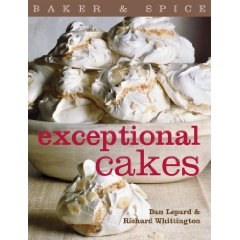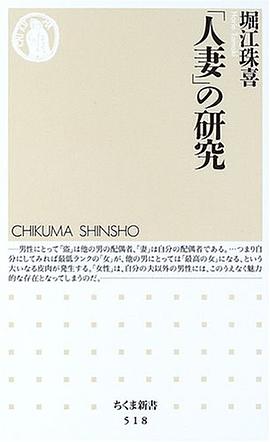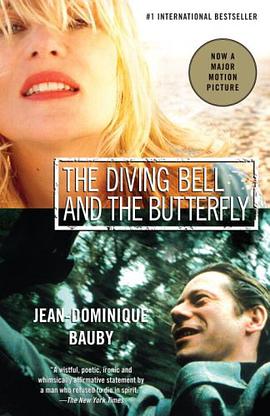
具体描述
From The Washington Post
From The Washington Post's Book World/washingtonpost.com Reviewed by Carolyn See In this particular case, the old adage "You can't judge a book by its cover" is jarringly true. The jacket of "English" features the face of a darling Chinese boy peeking out from a frame of folded pages from a Chinese-English dictionary. Behind him, within the frame, are hills meant to suggest the majestic Tian Shan Mountains, which serve as a backdrop to this narrative. The boy looks at us from another world, and while you can see only a part of his sweet face, he appears to be smiling. A blurb on the back of the book reads: "The pure friendship between the teenage boy and his English teacher is movingly beautiful . . . " That's fine as far as it goes, but there's no hint of the unpleasantries that accompany this tale: the storms of tears, the murder, the hideously destructive power of fear, the casual brutishness of the human race, the adultery rooted in loathing, the banality of evil to which humans gravitate with gross enthusiasm and the bad taste that so often accompanies it. I loved this book and can't stop talking about it. But it's wrenching and merciless and, though fictional, rooted in historical truth and based on the life of its author, Wang Gang. The story is set in the industrial town of Urumchi, way up in Northern China, close to the Russian border. There's a sizable population of the Muslim Uighur tribe as well as Han Chinese. Some of these Chinese are unlucky intellectuals who have been sent here partly as punishment, partly to strengthen the border against possible invading enemies. The Cultural Revolution has been going on for some years, but Love Liu, the boy who narrates this story and is 12 when it begins, never talks about that directly. A grown-up when he recalls the tale, he refers to those times with the cryptic phrase "in those days," which readers may first think of as nostalgia but gradually come to see that "in those days" everyone was on the brink of starvation and terrified for their very lives. The worst may be over, as the story begins. But maybe not. Love Liu doesn't consciously know much about this. He knows that his father used to be an architect (he designed the National Theatre in town, as well as Love Liu's middle school) but now paints posters of Mao on city walls. He also knows that, over by the East Hill Graveyard, "People were often executed by firing squad." But his real world is in his middle school classroom, where he is flanked by prissy, hysterical Sunrise Huang, a perennial teacher's pet, and the hooligan Garbage Li, who earned his name by picking through garbage to help his family make ends meet. Love Liu's life is governed by teachers; the kids have stopped learning Russian and now are being taught the Uighur language by Ahjitai -- a mixed-blood beauty, half-ethnic Uighur, half-Chinese. But when English becomes a new curriculum requirement, Ahjitai is replaced by Second Prize Wang, a young man who speaks the language. The boys in class are disconsolate; they've all nourished terrible crushes on Ahjitai, but Sunrise Huang takes one look at the new teacher and falls for him like a ton of bricks. Something like that happens to Love Liu as well. It may be Mr. Wang's gentlemanly ways or his refusal to speak ill of anyone, or it may be the beauty of the new language he teaches. We've all had something like that in our youth -- something that promises to separate us out, to take us into a better world, a place far away from this sometimes excruciatingly dull daily life. It doesn't matter what the object is; the process of getting there is the precious part, the part that's like falling in love. Despite the rigors of the political regime, love is everything in this novel: Sunrise adores Second Prize Wang, Garbage Li adores Sunrise, and Love Liu adores the beauteous Ahjitai (and the English language). In the generation above them, Love Liu's mother has something going on with the middle school principal; Sunrise's mother has an illicit relationship with Commander Shen, a former war leader; and Ahjitai is relentlessly pursued by Director Fan, an odious flunky of the Cultural Revolution. Love, self-interest or fear propels each one of them. It's not pure or romantic love; it's squirmy and surreptitious. Lust and longing know no boundaries. They have nothing to do with Chairman Mao. But they're all anyone can think about. Love Liu's parents are a mystery to him. One minute they're kissing him, the next they're whaling him smartly across the face with chopsticks or smacking him or kicking him viciously. The minute after that, they're apt to be sobbing loudly, telling him it's all for his own good. Low-grade violence is everywhere the boy looks: Both Love Liu's and Sunrise's mothers slap Second Prize Wang, accusing him of prurient interest in their children. Director Fan slaps Love Liu's dad in the street. Ahjitai slaps poor Mr. Wang, who is also unrequitedly in love with her. The truth is, they're all at wit's end. The firing squad is waiting right across town. Against a background of sappy love tunes in praise of Chairman Mao, Death literally stalks. It comes, if not by execution, by suicide or starvation or poison. Second Prize Wang just can't seem to get behind all this. He dresses and acts like a gentleman; he wears cologne. He treats his students with respect. You know he'll be lucky to escape this hellhole with his life, but he's oblivious. He teaches Love Liu the words to "Moon River," and the easy sweetness of that tune takes on a moody subversion. He teaches his students that there is such a thing as a personal life and the legitimate quest for beauty. Second Prize Wang, by his very name not destined to be a winner in society, saves more than one soul in the ratty town of Urumchi. The author includes a bitter afterword about what the Cultural Revolution was really like. Murder, violence and terror were everyday things in those days, he writes. But in "English," the first of his novels to be translated into English, he has chosen to focus on "moments of tenderness and forgiveness." It's an incredible example of human resilience that Wang managed to survive and write this transcendent book.
Copyright 2009, The Washington Post. All Rights Reserved.
作者简介
目录信息
读后感
评分
评分
评分
评分
用户评价
这本书,坦率地说,让我有点摸不着头脑。我原本期望能从中找到一些关于英语学习的坚实方法论,或者至少是能激发我学习热情的“内幕消息”,毕竟书名《English》听起来如此直接,直指核心。然而,读完之后,我感觉自己像是被邀请参加了一场盛大的宴会,结果端上的却是一盘摆盘精美、但味道平淡无奇的开胃小点。它似乎更像是一本关于“如何思考英语”的哲学散文集,而非一本实用的语言工具书。作者用了大量的篇幅来探讨语言的本质、文化的渗透性,以及个体在学习新语种时所面临的心理障碍。这些观点本身不可谓不有深度,时不时地能让人停下来,陷入沉思——“啊,原来我学习英语的方式是基于这种潜意识的假设!”但问题在于,当我想把这些深刻的洞察转化为具体的行动时,比如“我明天应该如何修改我的发音练习?”或者“哪种词汇记忆法更有效率?”,书中的指导就变得极其模糊和抽象。每一次似乎都要把我引向一个更宏大的概念,而不是一个可操作的步骤。我理解,艺术性地探讨语言是高雅的,但对于一个急需在下个月的国际会议上进行流畅汇报的职场人士来说,我需要的是能立即投入实战的弹药,而不是关于弹药制造原理的冗长解析。这本书的阅读体验,就像是听一位非常博学的教授在讲授一门高度理论化的课程,你佩服他的学识,却无法在考试中运用他的理论。它更适合那些已经对英语有相当基础,并热衷于探讨语言学和文化哲学的读者,对于初学者或急于提高应试能力的读者,可能会感到力不从心,甚至有些许的“被戏耍”感。
评分说实话,这本书的标题简直是一种误导,它给人一种极简主义的承诺——“这里就是英语的全部精髓,提炼过的,干净利落”。但实际内容却呈现出一种极度膨胀的、近乎“百科全书式”的庞杂感,只是它没有遵循任何已知的百科全书的编排逻辑。我尝试用做笔记的方法来梳理其中的要点,但很快就放弃了。因为每当我标记下一个重要概念时,我发现它与前一个概念在逻辑上是松散耦合的,它们之间的联系需要读者自己去费力地构建。作者似乎坚信,只要把所有他认为“重要”的元素都堆砌在一起,读者就能自动领悟到其中的和谐。这种做法对那些习惯了结构化教材的读者来说,简直是噩梦。我更像是在阅读一位天才学者的私人日记,里面充满了各种闪光的、未经整理的片段思想。我特别注意了关于语法部分的处理,但令我失望的是,那里几乎没有出现任何清晰的规则讲解或例句分析。相反,语法被描绘成一种流动的、受社会和历史影响的“软结构”,而不是一套相对固定的操作指南。我希望得到的至少是一个明确的框架,哪怕是提出质疑的框架也好,但这里只有对框架本身的解构,却没有留下可以搭建新框架的砖块。如果你想通过这本书获得明确的提升,我建议你带着一本字典和一份语法参考书一起阅读,因为这本书本身无法充当那个基础工具。
评分我注意到这本书在市场上被宣传为“重塑你对英语的认知”。带着这份雄心勃勃的宣传语,我翻开了第一页,期待着一场认知上的颠覆。然而,这本书给我的感觉更像是一次漫长而冗余的导览,带我参观了语言学的“名胜古迹”,但却遗漏了“交通指南”和“急救站”。它的论述往往在关键时刻“失焦”。比如,在探讨跨文化交流障碍时,作者铺陈了大量的历史案例和社会背景,描绘了一个无比生动的图景,让我为之动容。但当读者迫切地想知道,在实际商务谈判中,如何避免这些已经被指出的陷阱时,作者的笔锋却悄无声息地转向了对某个早期英语方言词源学的考证。这种处理方式,使得全书的结构呈现出一种“头重脚轻”的特点。所有宏大的、理论性的铺垫都无比扎实,但所有关于“如何运用”的实际指导,都像是被匆忙地塞在了书的末尾,而且篇幅极其有限,往往是几句话带过。这本书像是为一位已经拥有炉火纯青的英语技能,但想探讨语言哲学的大师所写,它给予的“反馈”是鼓励性的、启发性的,但绝不是诊断性的或改进性的。如果你的目标是提升实际应用能力,这本书的价值,可能更多地在于提醒你英语世界的广阔无垠,而不是提供一张通往你目的地的地图。
评分这本书的语言风格,简直就是一场文字游戏的高难度挑战。作者的词汇量无疑是惊人的,他频繁使用一些罕见而精准的词汇,使得阅读过程充满了不断查阅生词的挫败感。当然,作为一本关于英语的书,使用高级词汇或许是作者有意为之,旨在展示语言的力量。然而,当这种“炫技”的倾向压倒了清晰传达信息的需要时,阅读体验就开始急剧下降。我发现自己常常需要停下来,反思作者究竟想用这一个极其复杂的长句来表达哪个简单的意思。这就像是,本来只需要一个十字路口就能到达目的地,结果作者却非要设计一个复杂的立体环岛,并且还要求你用拉丁文来汇报你选择了哪条车道。对于我这样的非母语学习者来说,这种语言上的密集轰炸,非但没有让我更深入地理解英语,反而加深了我对英语复杂性的恐惧。它更像是一件供人欣赏的精雕细琢的艺术品,而不是一个用来日常交流的实用工具。我期待的是一种“可达性”,一种让学习者感到被邀请和鼓励的语调,但这本书传递出的是一种高高在上的“鉴赏”姿态。我最终感觉,我花了很多精力去理解作者如何用英语写作,而不是学习如何用英语更好地交流。
评分这本书的装帧设计非常引人注目,那种略带复古的米白色纸张,加上烫金的书名,摆在书架上绝对是艺术品级别的。我买它,很大程度上是冲着这份审美去的。拿到手中时,那种厚重感和纸张的细腻触感,让人联想到那些珍藏的经典文学作品。然而,阅读过程却是一场与我的期望值之间的漫长拉锯战。它的叙事风格极其跳跃,仿佛作者的思绪像一只停不下来的蜂鸟,从一个遥远的典故瞬间飞跃到一个现代的俚语,然后再急转弯去讨论莎士比亚的某个晦涩的句法结构。我花了大量时间去适应这种毫无预兆的跳转,这使得我很难建立起一个连贯的知识脉络。举个例子,在某一章,作者似乎在讲述如何掌握美式口音的卷舌音,我正全神贯注地试图分辨那些复杂的音标和舌位描述,结果下一页画风突变,变成了一段关于维多利亚时代英国上流社会咖啡馆的文化杂谈。这种内容上的“碎片化”处理,虽然可能意在展示英语语言的广博性,但对于我这种需要系统化学习路径的读者来说,无疑是一种折磨。我需要的是一盏清晰的路灯,指引我穿过迷雾,而不是一串闪烁不停、毫无规律的霓虹灯。这本书的价值似乎更多地体现在它“可以被谈论”的属性上,而不是它“可以被教授”的属性上。我合上书本时,感觉自己了解了许多关于英语的“趣闻轶事”,但对于“如何提升我的英语水平”这个问题,依然停留在原地打转。
评分 评分 评分 评分 评分相关图书
本站所有内容均为互联网搜索引擎提供的公开搜索信息,本站不存储任何数据与内容,任何内容与数据均与本站无关,如有需要请联系相关搜索引擎包括但不限于百度,google,bing,sogou 等
© 2026 qciss.net All Rights Reserved. 小哈图书下载中心 版权所有





















